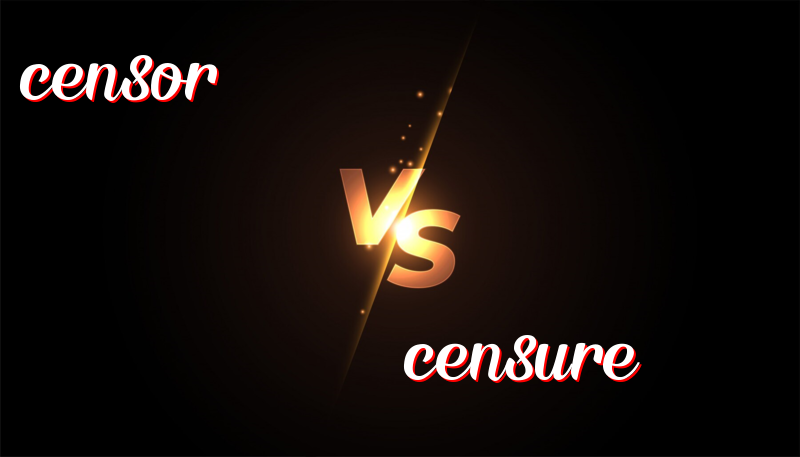Censor vs. Censure: Understanding Their Meanings and Usage
November 20, 2024
Censor vs. Censure
History
The words “censor” and “censure” sound alike but mean different things.
- Censor: Comes from a Latin word meaning “to judge.” It has been used for a long time to talk about checking and removing parts of something.
- Censure: Also comes from Latin, meaning “to blame or criticize.” It means to show strong disapproval.
How to Use Them
Let’s look at what each word means and how to use them:
Censor
“Censor” means to look at something and take out parts that are not okay to show or read. You censor things to hide bad or harmful parts.
- The TV station had to censor the bad words in the movie.
- The book was censored for having too much violence.
- The government often censors news it does not like.
- The teacher censored the students’ essays for any bad language.
- The film had to be censored before children could watch it.
Censure
“Censure” means to strongly say you do not like something or someone. It is like making a formal complaint or saying, “This is wrong!”
- The board voted to censure the manager for his poor decisions.
- She faced censure from her peers for breaking the rules.
- The teacher’s actions were met with censure from parents.
- The president was censured by the Senate for his conduct.
- The company’s censure came after many complaints from customers.
Trick to Remember the Difference
Here’s a simple way to remember:
- Censor sounds like “sensor,” which detects and blocks what is not okay, like a gatekeeper.
- Censure has “sure” in it—it’s like being sure that something is wrong and saying so.
Summary
“Censor” and “censure” are different:
- Use censor when hiding or blocking content.
- Use censure when criticizing or showing disapproval.

Leave a Reply
You must be logged in to post a comment.